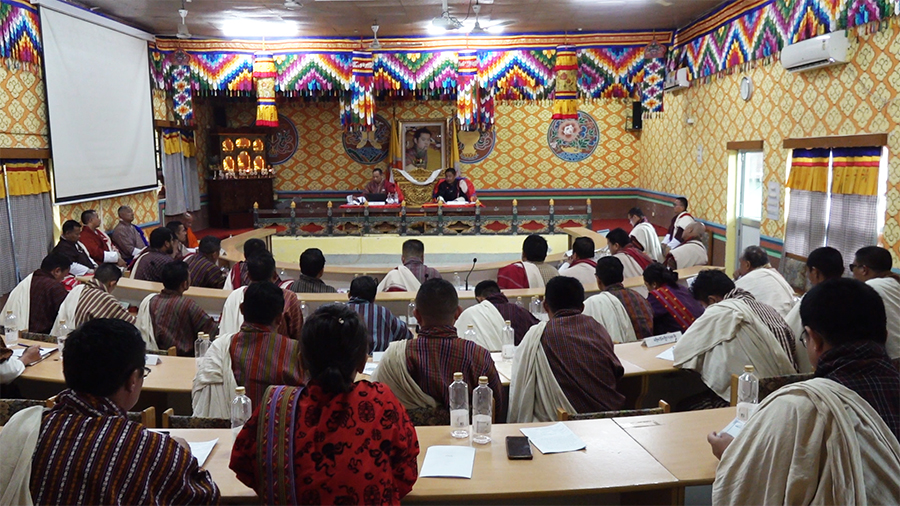
The recent Dzongkhag Tshogdu in Samtse saw extensive deliberations on issues about the conversion of dry land into residential land to construct temporary piggeries and cowsheds. Local leaders say allowing the conversion of only 50 decimal dry land to residential land is not enough and that the process is time-consuming. Local leaders also highlighted a lack of response from the National Land Commission Secretariat.
While accepting the new rule to convert dry land to residential land regarding the construction of permanent structures, the Dophuchen Gup raised concerns about the rule’s applicability to temporary constructions.
He said converting dry land into a residential area just for constructing a temporary shed for a brief period is not feasible.
The gup added that people have taken loans by mortgaging their dry land.
“Most of the residents in my village have mortgaged their dry land and taken loans. Now, when they want to build temporary sheds on their land, they are facing difficulty in converting their land to a residential area,” said Phuntsho, Dophuchen Gup.
The rule permits the conversion of only 50 decimals of dry land into residential areas.
According to local leaders, this has resulted in structures like piggeries constructed being near houses raising health and hygiene concerns.
“We cannot convert more than that. So, most of the piggeries and poultry farms are just nearby our homes. This is quite risky for our health,” said Leela Dhar Chapagai, Denchukha Mangmi.
The local leaders proposed giving the district, dungkhag, or the gewog office the authority to approve temporary constructions like piggeries and cowsheds.
For now, local leaders say people must travel to the National Land Commission Secretariat in Thimphu for approvals.
In response to these concerns, the District Land Registrar said that both dry and wet land are designated for agricultural purposes only.
“Despite people constructing all kinds of temporary sheds on their dry land, the system that we have show that the land is registered as dry land. The information on our system and the reality on the ground was not matching. So, we introduced a new rule to avoid such errors,” said Chador, District Land Registrar of Samtse.
The Dzongkhag Tshogdu decided to write to the NLCS again, urging the commission to explore possible solutions.
Passang Dorji, Samtse
Edited by Sherub Dorji








